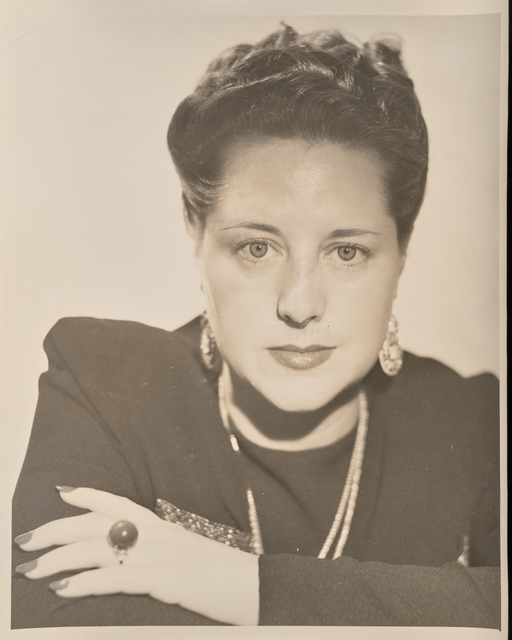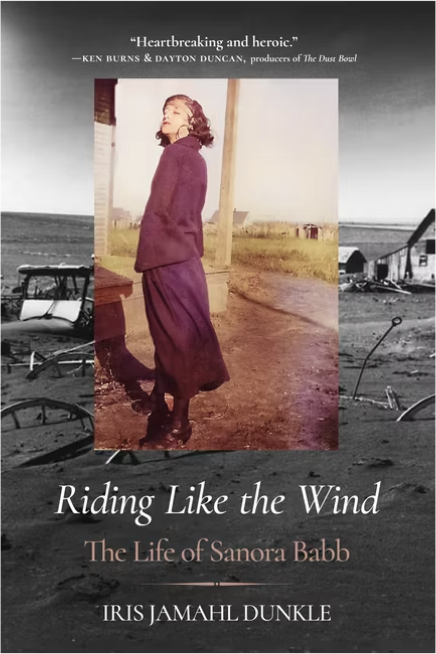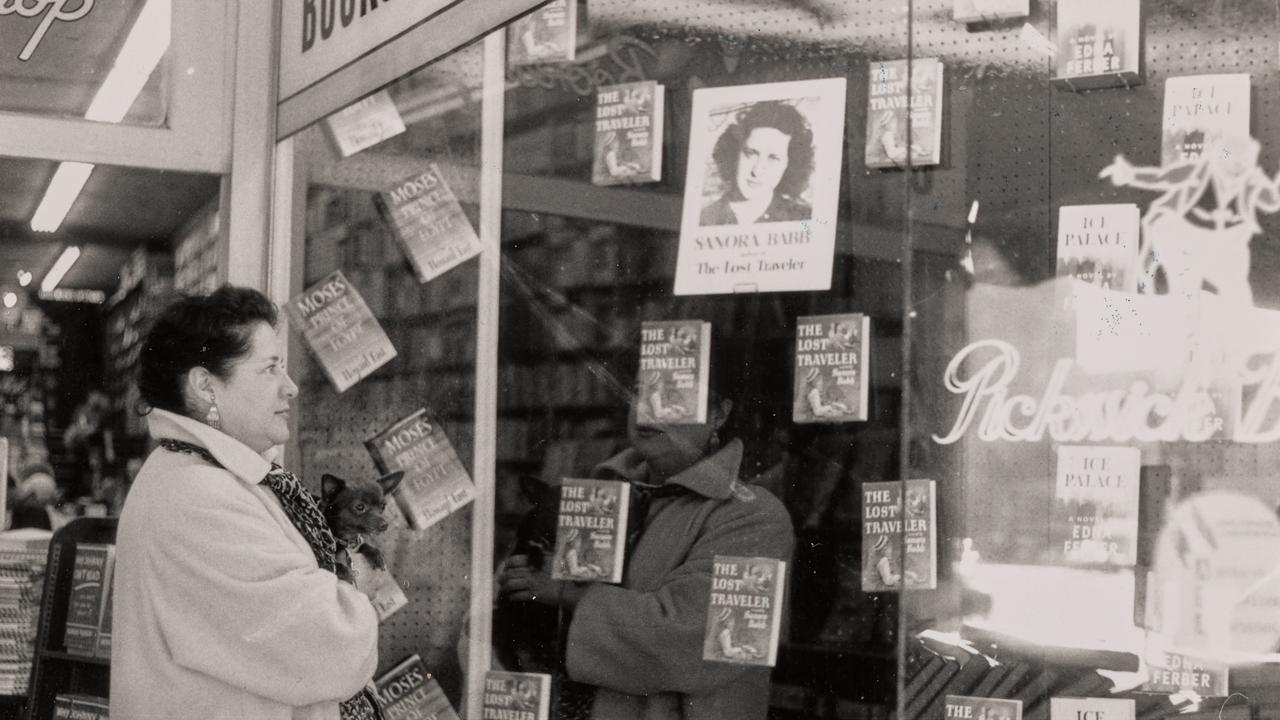
Telling women’s stories is what excites writer Iris Jamahl Dunkle. Since 2019, the biographer, poet and creative writing instructor has been shedding light on these previously underappreciated women in two books as well as a weekly online newsletter, Finding Lost Voices, via Substack.
Her latest book, Riding Like the Wind: The Life of Sanora Babb, is about a female writer who, while living among Dust Bowl refugees in California, was asked to share her notes with author John Steinbeck. Steinbeck used those notes in his novel The Grapes of Wrath. Babb’s own book, Whose Names Are Unknown, was due to release just months later but publishers pulled it because, as Dunkle tells it, they thought there wasn’t enough demand in the market for two books about the Dust Bowl.
But there’s much more to Babb’s life than her overlap with Steinbeck. And that’s the story that Dunkle tells in her literary biography, which was released in October to great acclaim. An excerpt of Riding Like the Wind was recently published in Salon magazine and reviewed in The New York Times.
A shared ‘Okie’ heritage
Dunkle, who grew up in Sonoma County, can still recall her own grandmother’s feelings about Steinbeck’s novel. She had moved to California during the Dust Bowl and was frustrated by how “Okies” like herself were characterized in the book.
“I didn’t understand her anger and I was kind of ashamed of my Okie heritage,” Dunkle said. “I didn’t really celebrate it. In fact, we weren’t even allowed to say the word ‘Okie’ because it was used as a slur.”
The Grapes of Wrath’s depiction of the fictional Joad family — poor and constantly struggling — doesn't leave much room for empathy, according to Dunkle.
Dunkle will be making appearances for the next six weeks
Find all her upcoming events., including at UC Davis.
“It's a story that’s built on stereotypes and it’s heralded as this great American story — and it’s good writing — but it’s another mythology of the west that puts women in a disempowered situation without agency,” Dunkle said. “And I'm really tired of that story in literature.”
Babb, on the other hand, helped Dunkle feel proud of her Oklahoma roots. In Babb’s novel, characters are more diverse, realistic and have agency.
“It helped me see my heritage differently and, I thought, well, what could that do for other women who have not seen themselves, especially, in Western stories?” Dunkle said.
Immersing herself in Babb’s story, then writing it, was a five-year process that included trips to Oklahoma, Texas, Colorado and even Connecticut for archival research, sensory research and interviews.
“Her life is so storied,” Dunkle said.
The biography, meant to read with the flow of a novel, covers Babb’s early life growing up in Oklahoma and Colorado. She lived in a dugout on a broomcorn field and learned how to read from The Denver Post pages her mom posted against the dirt walls. Her life was hectic with her abusive, gambling father, but everything changed after she escaped to Los Angeles. Babb became a writer, hanging out with the likes of Tillie Olsen, Ray Bradbury and Ralph Waldo Ellison, whom she had an affair with.
"Story was my most important guiding principal — and really writing sensory rich scenes because she was such a sensory rich writer,” Dunkle said. “When you read her stories, you feel her connection with the land and the place. In order for me to write it, I had to go to eastern Colorado and see its beauty and feel what it feels like to walk on buffalo grass or hear the geese flying overhead, smell the sage in the air.”
Bringing women’s stories forward
Babb’s story is the second biography of Dunkle’s to be published. The first, Charmian Kittredge London: Trailblazer, Author, Adventurer, is about another near-forgotten woman, author Jack London’s wife who, Dunkle said, helped him write many of his books but was never given credit for it.

Growing up, Dunkle was always familiar with Jack London because Sonoma County is home to Jack London State Park.
“That’s where I discovered you could be a writer,” she remembered.
After that biography was published in 2020, the local museum, the House of Happy Walls Museum, asked if Dunkle’s research could be used during its remodel.
“It brought Charmian Kittredge London’s story into the museum and that was so meaningful to me as a scholar to have the work that I've done change something in the physical world that could maybe change the experience for young girls going to the park,” Dunkle said.
Since then, Dunkle has been committed to telling the stories of women like London who have been “forgotten or misremembered.”
Finding lost voices
Her newsletter, Finding Lost Voices, which she began last year, already has more than 3,000 subscribers.

“It’s been amazing, people are just coming out of the woodwork,” she said. “There's a lot of women who are interested in learning about women who have been forgotten.”
Dunkle, who teaches creative writing and literature in the College of Letters and Science at UC Davis, will give readings from Riding Like the Wind across the U.S. for the next six months in addition to teaching undergraduates.
“I love being able to show my students what it’s like to be a professional writer,” Dunkle said. Some of her students have been following her writing journey and, she said, it’s exciting to be able to share the end result with them so they can see “you can actually do this.”
“As an undergrad, I didn’t know that I could get here and I just feel like it’s really important to make them realize how gifted they are and how this is a possible path for them,” she said.
Dunkle will in conversation with Matthew Stratton at the Jan Shrem and Maria Manetti Shrem Museum of Art at UC Davis on Nov. 19 at 4:30 p.m. That same week, she will be holding readings in San Francisco, Berkeley and Oakland. Find all her upcoming events.
This story is republished from the College of Letters and Science.
